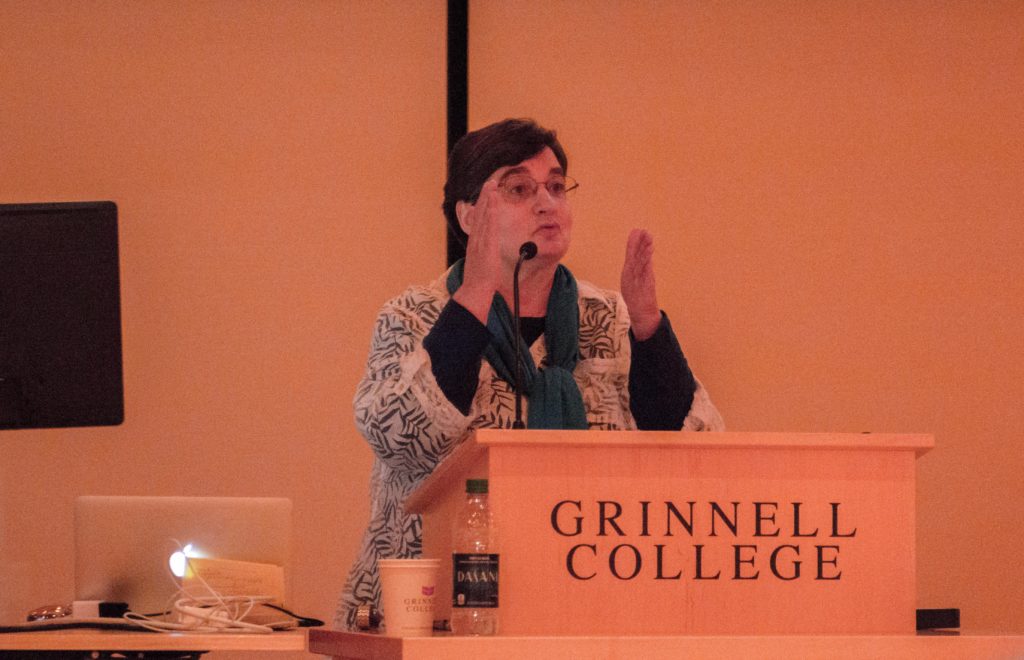Louise Carhart
carhartl17@grinnell.edu
Last Wednesday, Feb. 22, Professor Kathleen Newman, an associate professor of cinematic arts at the University of Iowa, gave a talk on cinema and the growing international participation in the creation of culture. Newman’s work examines the globalization of culture, as our world continues to export media across borders and oceans. Her talk focused on the Latin American perspective and responded to the increase of Latin American films in the global cinema scene.
As a founding member of the Latino Caucus of the Society for Cinema and Media Studies (SCMS), Newman has worked on a variety of projects and books that examine the cultural implications of widespread media in the Latin American market. She has edited a number of books on Latin American cinema, world cinema and transnational practices associated with globalization. Her current project looks at Argentine silent cinema as one of these transnational practices and theorizes on the concept of peripheral modernity.
Her talk focused on this kind of work; for Newman, the intersection of national culture and a global influence have implications for domestic and world culture. These implications are a result of the interconnected global economy and the exchange of culture is a relatively new study. Newman’s field is a developing one, but she is at the forefront of globalization media studies.
In addition to the connections between globalization and film, Newman is interested in how politics manifest in cinematic fictional narratives. This work has led Newman to examine how directors and artists translate present-day situation into fictional accounts, especially in terms of movements and oppression. She has looked at the rise of democracy in Argentina and the corresponding cinematic movements that promoted feminist thought.
Newman believes that the category of “national cinema” must be studied along with the “transnational” category when approaching films that were made for an audience larger than their home country. She has suggested that national cinema no longer exists, rather in our interconnected world all forms of art have influences and connections to art made abroad. In addition, Newman looks at the uneven balance of exported films. The flows of art are often unequal, as certain countries and artists are prioritized over a more diverse selection of movies.
At Grinnell, the Center for Humanities has made an effort to include more films from Latin America and other regions of the world. This past Tuesday, Feb. 21 the program sponsored a screening of “The Pearl Button,” a Chilean film by Patricio Guzmán. For students like Xena Fitzgerald ’17, the film depicted much of what Newman studies in terms of the intersection of film and politics.
“The film considers the ocean as a way to examine the genocide of the indigenous people who depended on the ocean for sustenance and canoe travel,” Fitzgerald wrote in an email to The S&B. “Layered on top of the narrative of the indigenous people, the film also addresses the murders under the [Pinochet] dictatorship and the bodies that were dumped into the ocean.”






























































